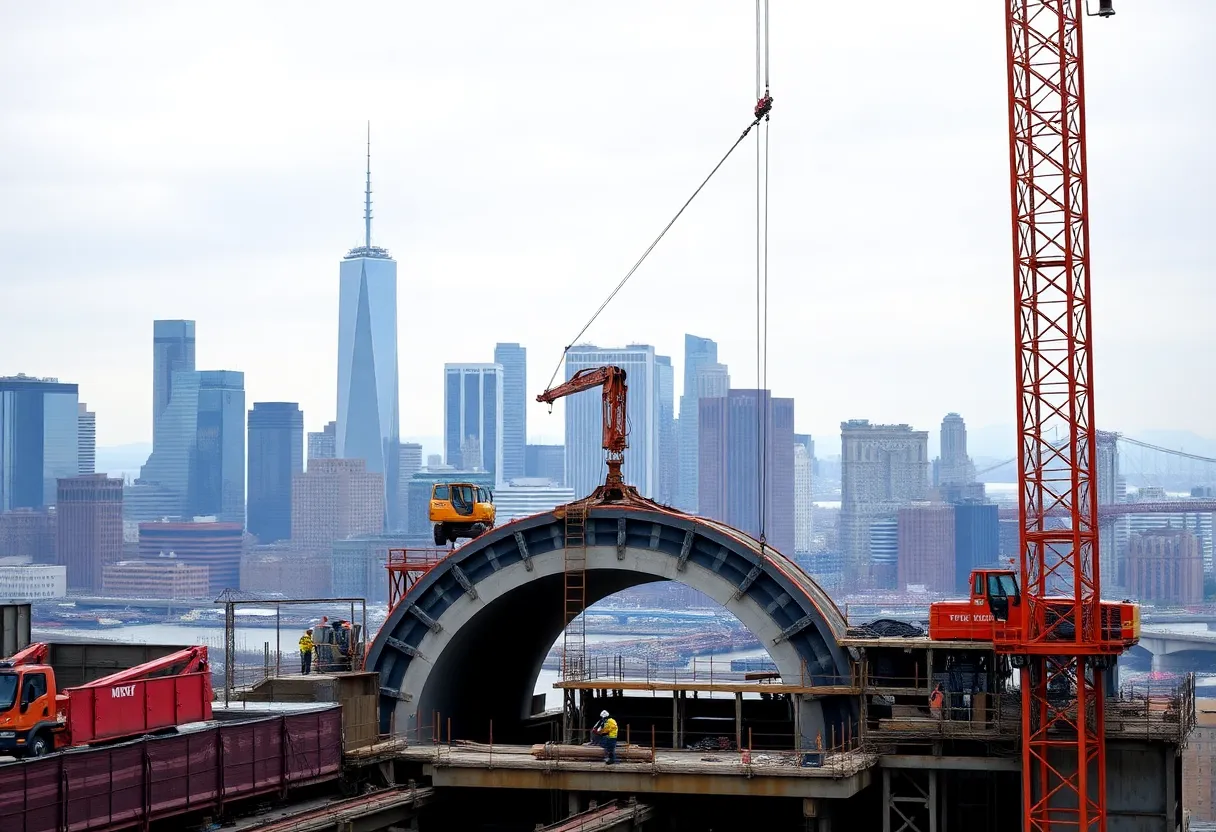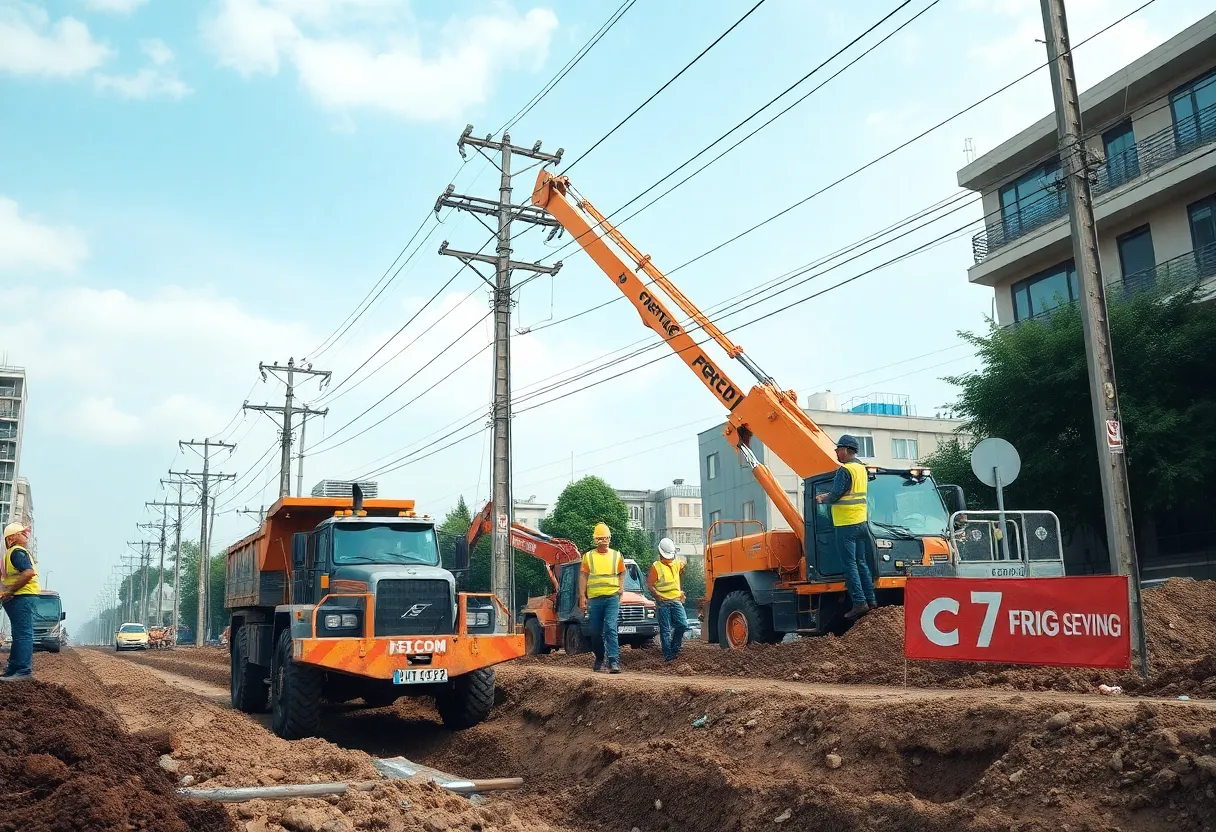News Summary
The construction industry is experiencing a decline in trust regarding AI adoption, with only 68% of leaders believing AI will positively impact their sector. This skepticism reflects a hype cycle phenomenon and highlights challenges related to data quality and the tech skills gap. Companies must focus on effective training and data governance practices to harness the full potential of AI. Despite ongoing concerns, early adopters are leveraging AI technologies to improve project management and decision-making. The future of AI in construction rests on ethical considerations and substantial investments in workforce development.
Trust Declines in AI Adoption Amid Challenges in Construction Industry
As the construction industry navigates the evolving technological landscape, artificial intelligence (AI) has been touted as a potential game-changer, presenting opportunities to enhance productivity, minimize rework, and mitigate labor shortages. However, recent reports indicate a notable decline in trust among industry leaders regarding AI’s impact, which poses challenges to its widespread adoption.
Falling Trust and Emerging Skepticism
According to Autodesk’s 2025 State of Design & Make report, trust in AI has declined by 14 percentage points over the past year. Currently, 68% of construction leaders express belief in the potential of AI to improve the industry, a significant drop from 80% in 2024. Additionally, 44% of leaders are wary that AI could destabilize the construction sector. This growing skepticism highlights a classic tech hype cycle, placing the construction AI narrative in the “trough of disillusionment” stage of Gartner’s Hype Cycle.
Key Challenges Hindering AI Integration
Several challenges contribute to the lukewarm reception of AI in construction. A major hurdle is the industry’s reliance on clean, structured data, which is often insufficiently addressed. Many AI applications thrive on quality data, yet construction systems remain fragmented, complicating effective implementation. Furthermore, AI models require tailored construction-specific data for accurate outputs; without access to such data, AI remains limited in its applicability.
A general lack of effective technology that directly addresses critical challenges within construction deepens skepticism toward AI. Successfully implementing AI necessitates overcoming obstacles related to mindset and change management. Moreover, there is a burgeoning gap in required technical skills within the construction workforce, as AI tools rely on skilled operators and data managers.
Workforce Development and the AI Skills Gap
The gap in AI skills primarily reflects a training gap, often influenced by budget constraints and a disconnect between available AI offerings and the operational needs of companies. Many firms are still in the discovery phase, exploring AI’s potential instead of effectively implementing it. The need to identify appropriate use cases is also paramount, with 47% of construction leaders expressing concerns over this challenge. A mere 32% report having achieved their AI goals.
Early adopters in the sector are increasingly focusing on data technology and AI, underscoring the necessity of interconnected data to maximize AI utility. AI applications can greatly enhance design processes, improve communication, assist with project management, and streamline budget management tasks. These technologies can even perform constructability checks, flagging potential design issues before construction begins.
The Impact of AI on Project Efficiency and Safety
AI offers numerous advantages for the construction industry by generating more accurate project bids and estimates through the analysis of historical data and trends. By summarizing design changes and identifying inconsistencies in models, AI can help reduce errors in coordination and implementation. Furthermore, safety on job sites may see enhancements as AI analyzes site conditions, predicting areas of risk through data gathered from Internet of Things (IoT) devices.
AI-powered automation also plays a significant role in accelerating project closeouts by compiling necessary documentation and facilitating quicker approval processes. To reap these benefits, companies are advised to begin implementing AI solutions in areas that currently create tedious work, focusing on tangible impacts rather than speculative future use cases.
Establishing Data Governance and Continuous Investment
To ensure trust in AI systems, organizations must establish strong data governance practices that prioritize data quality and integrity. This emphasis on reliable data helps to strengthen AI’s credibility within the industry. Continuous investment in training and workforce development is equally critical for an effective AI strategy.
Many construction firms are now pivoting toward a future where they can successfully tap into AI’s transformative potential, positioning themselves to be ready for the inevitable adoption of technology. As firms explore the possibilities of AI, they must balance technological advancements with ethical considerations and a steadfast commitment to their workforce.
In conclusion, while the future of AI in construction carries immense promise, overcoming trust issues, skill gaps, and fragmentation is crucial to ensure the industry designs a successful pathway for AI integration.
Deeper Dive: News & Info About This Topic
Additional Resources
- Data Center Dynamics
- Wikipedia: Artificial Intelligence
- Pulse 2.0
- Encyclopedia Britannica: Artificial Intelligence
- Autodesk Blog
- Google Search: AI in Construction
- Facebook Engineering
- Google News: AI in Construction
Author: Construction NY News
The NEW YORK STAFF WRITER represents the experienced team at constructionnynews.com, your go-to source for actionable local news and information in New York and beyond. Specializing in "news you can use," we cover essential topics like product reviews for personal and business needs, local business directories, politics, real estate trends, neighborhood insights, and state news affecting the area—with deep expertise drawn from years of dedicated reporting and strong community input, including local press releases and business updates. We deliver top reporting on high-value events such as the New York Build Expo, infrastructure breakthroughs, and cutting-edge construction technology showcases. Our coverage extends to key organizations like the Associated General Contractors of New York State and the Building Trades Employers' Association, plus leading businesses in construction and real estate that power the local economy such as Turner Construction Company and CMiC Global. As part of the broader network, including constructioncanews.com, constructiontxnews.com, and constructionflnews.com, we provide comprehensive, credible insights into the dynamic construction landscape across multiple states.





